ЁЖЙиАЎжЎМв/жадМЭЪТ Care and LoveЁЗЃЈ2007ЃЉ
РњЪЗМЭТМЦЌ ЗЂБэгкЃК2020-4-18 17:52|ВщПД:1078|ЦРТл:1|зжЬх:аЁ жа Дѓ ЗБЬх
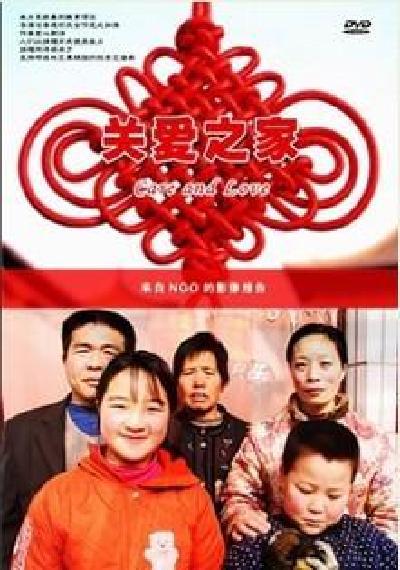
ЁЁЁЁЙиАЎжЎМв Care and Love (2007)
ЁЁЁЁЕМбн: АЌЯўУї
ЁЁЁЁжЦЦЌЙњМв/ЕиЧј: жаЙњДѓТН
ЁЁЁЁгябд: ККгяЦеЭЈЛА
ЁЁЁЁЦЌГЄ: 108Зжжг
ЁЁЁЁгжУћ: Care and Love
ЁЁЁЁМЭТМЦЌЁЖжадМЭЪТЁЗМђНщЃК
ЁЁЁЁЁАжадЁБОЩжИжажнЦНдЃЌМДКгФЯЁЃБОЦЌСІЭМГЪЯжНёШежадШѕЪЦШКЬхвђЦЖРЇЃЌвђбЊвКАВШЋЙмРэЪЇПиЖјОРњЕФЭДЪЗЁЃЮоБпЗимуЕФЮжЭСжЎЩЯЃЌгаЖрЩйКУФаКУХЎЩсЩњЭќЫРЃЌНвТЖецЯрЃЌЕжгљетвЛПѕЪРджФбЁЃ
ЁЁЁЁИааЛШЋЙњОЪфбЊИаШОАЌзЬВЁЪмКІШЫЙЄзїЮЏдБЛсЕФКгФЯГЩдБЃЌИааЛИпвЋНрНЬЪкКЭИаШОепЩчШКЁЃдкЫћ/Ы§УЧЕФажњЯТЃЌзїепЕУвдНјШыжадШєИЩАЌзЬВЁИпЗЂДхВЩЗУЃЌЧуЬ§ХЉУёЫпЫЕЕБФъЁАбЊНЌОМУЁБаЫЦ№ЕФРњЪЗБГОАЃЌГЪЯжвђЯзбЊЁЂЪфбЊИаШОАЌзЬВЁЕФМвЭЅЃЌгШЦфЪЧИОХЎЖљЭЏЕФЩњДцзДПіЃЌВЂМЧТМУёМфзщжЏдкЛљВуЕФаЮГЩКЭХЌСІЁЃ
ЁЁЁЁThe Epic of Central Plains
ЁЁЁЁCentral Plains, the ancient Zhongzhou, refers to Henan province. The Epic of Central Plains documents the stories of rural people and other marginalized groups living with HIV/AIDS caused by critical poverty and the loss of control of blood safety. On the land of epidemic, despite various confrontations, there are men and women activists endeavor to reveal the truth and defend for their health rights.
ЁЁЁЁThanks to the following people for making the documentary possible: local members of National Committee of Infection with HIV/AIDS Through Tainted Blood Transfusions, Prof. GAO Yaojie and the local people living with HIV/AIDS. With their kind support, the filmmakers are able to enter the villages and to listen to the villagers talking about the disaster of "plasma economy". In working with local communities, the documentary also presents the important role those NGOs in grassroots level play.
ЁЁЁЁThe documentary is Dedicated to the deceased by AIDS, their families, friends and children and all volunteers fighting against AIDS.
ЁЁЁЁМЭТМЦЌЁЖЙиАЎжЎМвЁЗМђНщЃК
ЁЁЁЁЁЖЙиАЎжЎМвЁЗЦ№вђгкЁЖжаЙњОМУЪББЈЁЗЪзЯЏМЧепЭѕПЫЧкЕФГЄЦЊБЈЕРЁЖаЯЬЈАЌзЬВЁецЯрЕїВщЁЗЃЌгАЦЌМЧТМСЫКгББаЯЬЈХЉДхИОХЎСѕЯдКьДђЙйЫОЕФЙЪЪТЁЃЫ§вђдквНдКЪфбЊИаШОАЌзЬВЁЖОЃЌОіЖЈЙЋПЊЩэЗнЁЂЦ№ЫпвНдКЃЌРњОМшЯежегкЛёШЁХтГЅЁЃвдЫ§ЕФОРњЮЊжївЊЯпЫїЃЌгАЦЌЭЈЙ§МИИіМвЭЅЕФдтгіКЭИаШОепГЩСЂЁАЙиАЎЁБаЁзщМЏЬхЮЌШЈЕФХЌСІЃЌГЪЯжГідкЛљВуХЉДхгПЖЏЕФЙЋУёШЈРћвтЪЖЁЃОЁЙмзЗЧѓЗЈжЮЕФТЗРЇФбжижиЃЌЕЋгЩгкЩчЛсЙиЛГЁЂУНЬхНщШыКЭЗЈТЩдЎжњЃЌеўИЎвВзЊБфСЫЬЌЖШЃЌВЂГіЬЈСЫИФЩЦИаШОепДІОГЕФеўВпЁЃдкЭЈЭљЩчЛсЙЋе§ЕФЕРТЗЩЯЃЌЁЖЙиАЎжЎМвЁЗГЪЯжСЫАЎгыЩчЛсИФБфЕФПЩФмадЁЃ
ЁЁЁЁCare and Love
ЁЁЁЁThe high profile success of The Blood of Yingzhou DistrictЁЊwinner of OscarЁЏs Best Documentary this yearЁЊhas encouraged worldwide attention on the HIV/AIDS epidemic in China. Almost at same time, two works on the subject have spreaded among the HIV/Aids activists and NGOs in China, The Central Plains (2006), and Care and Love(2007), directed by Ai Xiaoming, a professor from Sun Yat-sen University, and filmed by herself and Hu Jie.
ЁЁЁЁCare and Love draws its inspiration from ЁЎInvestigation of HIV/AIDS in XingtaiЁЏ, a feature article written by Wang Keqin, a senior journalist at China Economic Times, which tells the story of Liu Xianhong, a woman villager who contracted HIV through a blood transfusion during childbirth. The film documents how she publicized her story, filed a lawsuit with her 8-year-old son against the local hospital and eventually received compensation. The film also records the sufferings of several families and a collective effort to defend their own rights by people living with HIV/AIDS, who set up an organization, ЁЎCare and Love GroupЁЏ. The film reveals an increasing awareness of civil rights in rural areas. Growing social concern, media intervention and legal aid have forced the local government to compromise and modify their policy, and improve the situation for AIDS patients. Care and Love thus shows the possibility for social change on the way to social justice.
ЁЁЁЁЕМбнХФЩуИабдЃК
ЁЁЁЁвеЪѕЖдЮвРДЫЕЪЧКмИпЕФЦРМлЃЌЮвКмЯЃЭћШЫУЧАбЮвЕФМЭТМЦЌЕБзївеЪѕЃЌПЩЯЇЃЌвЛаЉГЧЪаЙлжкЭЈГЃВЛетбљЁЃЫћУЧзмЫЕЮвХФЕФЪЧаћДЋЦЌЃЌЪЧжїЙлНщШыЁЂДЉА№жЎзїЁЃетаЉВЛЮоСЏУѕЕФЦРМлМИКѕСюЮвЭДПоСїЬщЁЃ
ЁЁЁЁКѓРДЮвПДЕННнПЫЖЏЛДѓЪІбюЁЄЪЗдЦУЗвЎЕФНтЪЭЃЌЫћдкгАЦЌЁЖЗшПёСЦбјдКЁЗПЊЭЗеОГіРДЫЕЃКетВЛЪЧвеЪѕЁЃдкетИіЪБДњЃЌвеЪѕвбОТйЮЊЙуИцЁЃ
ЁЁЁЁЪЗдЦУЗвЎЕФЩљУїШУЮвЛэШЛПЊРЪЃЌЕФШЗЃЌдкФГИіЪБДњЃЌВЛНівеЪѕЖщТфЮЊЩЬЦЗЃЌВЛЩйШЫвВЛсЩЅЪЇСЫЦРМлвеЪѕЕФФмСІЁЃЫћУЧИќжиЪгЕФЪЧгщРжЃЌЖјВЛЪЧзїепКЭДхУёДЋЕнГіРДЕФаХЯЂЁЃКмЖрЙлжкВЛШЅБцБ№ЃЌЪВУДбљЕФаХЯЂЪЧаћДЋЃЌЪВУДбљЕФаХЯЂБЛЦСБЮЁЃЖјЧвЃЌгаЙижЊЧщетИіШЈРћЃЌгЩгкШЫУЧГЄОУвдРДВЛФмГфЗжЕиЯэгаЃЌЫљвдЃЌДѓМвЯАЙпгкАбОГЃБЛаћДЋЕФЖЋЮїЕБзїецЯрЃЌЖјАбФЧаЉВЛОГЃБЛаћДЋЕФЖЋЮїЕБзїМйЯрЁЃЕБЮвУЧХЌСІИјШЫУЧПДетаЉЕУВЛЕНдйЯжЕФЖЋЮїЪБЃЌЫћУЧОЭЫЕЃЌЮвЕФЩуЯёЛњЪЧжїЙлЕФЃЈЕФШЗЃЌЫќОГЃдкЦЌзгжаТЖУцЃЌШ§НЧМмвВГЃГЃПИдкБЛВЩЗУепЩэЩЯЃЉЃЛгАЯёЮЊСЫаћДЋзїепРэЯыЖјгшвдЗХДѓКЭЧПЛЏЕФЃЌВЂЧвЃЌЫќзмЪЧжЛВЩЗУЕЅЗНУцШЫЪПЃЈР§ШчЫќжЛВЩЗУСЫДхУёЃЌУЛгаВЩЗУеўИЎЃЛжЛВЩЗУСЫЪмКІШЫЃЌУЛгаВЩЗУОЏЗНЃЛЫќВЛШч CCTVПЭЙлЁЊЁЊЫќВЩЗУСЫИїЗНЩљвєЃЉЁЃ
ЁЁЁЁЮвВЛЯыОЭБОЦЌЕФММЧЩЫЕЪВУДЃЌЗДе§ШЫУЧвВШЯЮЊЫќУЛгаММЧЩЁЃОЭЫЕаћДЋАЩЁЃ
ЁЁЁЁЪЗдЦУЗвЎЫЕЃЌЮвХФЕФОЭЪЧаћДЋЃЌso what, ФувдЮЊЮвИуВЛСЫаћДЋТ№ЃПЮввВЯыЮЪЃЌЮЊЪВУДСэРрЕФЯжЪЕЁЂСэРрЕФецЯрВЛФмаћДЋЃПЮвгШЦфЯыЮЪЕФЪЧЃЌЮЊЪВУДгаЙиЮоШЈепЕФаХЯЂЃЌгаЙиПрФбКЭШѕЪЦШКЬхЕФзДПіЃЌДЋЕнГіРДОЭБЛГтжЎЮЊаћДЋЃПаћДЋФбЕРЪЧвЛжжЬиШЈТ№ЃП
ЁЁЁЁЮвЙ§ШЅЪЧвЛИібЇепЃЌЯждкМгШыСЫЖРСЂжЦЦЌШЫЕФааСаЁЃЮвОіЖЈХФЩугыЮвЙ§ШЅаДбаОПТлЮФЪБвЛбљЃЌЮвбЁдёЕФЪЧЮЪЬтЃЌФПБъЪЧЭЦЖЏИФБфЁЃдкХФЩуЩчЛсЮЪЬтМЭТМЦЌЪБЃЌЮвЕФСЂГЁЪЧЪмКІШЫЕФСЂГЁЃЌетГЃГЃАбЮвздМКБфГЩСЫИіЪмКІепЃЛвђЮЊКЭШѕЪЦШКЬхеОдквЛЦ№ЃЌВЛЬЋФмЕУЕНгаШЈепЕФРэНтКЭЙФРјЃЌЫљвдЮввВГЃГЃВЩЗУВЛЕНеўИЎЗНУцШЫЪПЁЃвВвђЮЊетвЛЕуЃЌОЁЙмВЛЪЧвЛИіжАвЕаТЮХЙЄзїепЃЌДхУёАбЮвЕБзїздМКШЫЁЃЫћУЧЪМжеЯраХЃЌБОЦЌПЩвдЯђЩЯМЖСьЕМЗДгГЫћУЧЕФЭДПрЃЌПЩвдШУЩчЛсЙЋжкЬ§МћЫћУЧЕФЫпЧѓЃЌзюжеФмАяжњЫћУЧНтОіЮЪЬтЁЃЮвдкЮЪЬтжаЙЄзїЃЌЮЊСЫНтОіЮЪЬтЖјХФЩуЃЌЮввЛЕувВВЛПЭЙлЁЃетбљЕФНЧЩЋКЭМЭТМЦЌЃЌЕБШЛЪЧвЊЪмЕНЛГвЩЕФЁЃ
ЁЁЁЁГЄЛАЖЬЫЕЃЌФПЧАЕФЧщПіЪЧЃЌЕБвЛаЉГЧЪаЙлжкжЪвЩетбљЕФМЭТМЦЌЁЂГтжЎЮЊаћДЋЪБЃЌЕБЕиеўИЎгаЙиШЫЪПвЛблОЭПДГіЃЌОіВЛФмШУетбљЕФаћДЋСїДЋГіШЅЁЃгкЪЧЃЌДгШЅФъ10дТжСНёЃЌеўИЎЗНУцгаЙиШЫЪПвЛжБдкЖЏдБДхУёзшжЙЁЖЙиАЎЁЗЕФВЅЗХЁЃ
ЁЁЁЁЮвКмЯЃЭћгыЕБЕиеўИЎБЃГжгбКУЙиЯЕЃЌЕЋЮвЭЌбљВЛФмЙМИКЪмКІДхУёЕФЦкД§ЁЃДЫЭтЮвЛЙШЯЮЊЃЌетИіЩчЛсШБЕФОЭЪЧЙиАЎЃЌдѕУДФмНћжЙЙиАЎФиЃПЮвждаФЯЃЭћДѓМвЖМРДПДетВПЦЌзгЃЌЖМРДЯывЛЯыЃКгіЕНШЫУќЙиЬьЕФЪТЧщЃЌДхУёИУдѕУДАьЁЂеўИЎИУдѕУДАьЁЂЗЈЙйгжИУдѕУДАьЁЃ
ЁЁЁЁЮвдйДЮЩљУїЃЌВЛБиАбетИізїЦЗЕБзївеЪѕЁЃЫќЖдШЫУЧЬсЮЪЃЌВЂЦкД§ДѓМвРДЬжТлЮЪЬтЁЃ
ЁЁЁЁDirectorЁЏs commentary:
ЁЁЁЁAi Xiaoming
ЁЁЁЁTo attain the quality of art is always my inspiration, and I very much hoped that film audience would regard my documentaries as art; unfortunately, some urban audiences consistently dismissed them as propagandistic and subjective. I was frustrated by these comments until I came across a statement by the Czech animator Jan Svankmajer who opened his new film Sileni with the following lines: ЁЎThis is not a work of art. Today, art is reduced to advertisements.ЁЏ
ЁЁЁЁIndeed, over time, not only can art degenerate into commodity, many people can also lose the ability to appreciate it. They are more receptive to entertainment than any messages the filmmaker and people from the villages might try to communicate. It becomes difficult to distinguish between what has been propagandized and what has been censored when people have long been unable to enjoy their right to access informationЁЊthey mistake propaganda for truth, and dismiss what is outside the scope of propaganda as lies. When I show audiences what they do not usually see, they say that my camera is so subjectiveЁЊyes, it quite often appears in my films and the villagers carried the tripod like my crewЁЊthat it exaggerates reality, embellishing my ideals. They blame me for interviewing only villagers but not the government; only victims but not the police, and presenting only one-sided voice as a result. Consequently my films are criticized for not being ЁЎas objective as CCTVЁЏ, which, the urban audiences assume, neutrally shows what has happened by involving different voices.
ЁЁЁЁI do not want to comment on the techniques of my films, as people do not believe that they have any. I will focus on propaganda. In another astute comment, Svankmajer reflected: ЁЎMy film is indeed propaganda. So what? Do you think that I am not able to make propaganda?ЁЏ
ЁЁЁЁI want to add: why are we not allowed to propagandize the other side? In particular, why do people always call it propaganda whenever there is a message from the marginalized group? Is propaganda a privilege?
ЁЁЁЁI have been a scholar and professor for many years before joining the community of independent filmmakers. Just as I focused on certain subjects in my academic research, I also select particular issues when I film. I decide to work on a film after I have identified there is a problem, and my aim is to support and provoke change. When I made these films, I worked from the vantage point of the ordinary people, though it made me vulnerable to similar treatment. The authorities neither understood nor supported me, after I had taken the side of the villagers or forced to relocate households groups, and quite often they made it impossible for me to interview any officials. I was even detained at one point: a group of young police officers interrogated me, and I fully understood the meaning of humiliation. On the other hand, the people I interviewed became my real crew, they welcomed me quickly as one of them, and was willing to work with me for the program as their voice They always believed that my films would bring their sufferings of injustice to the authorities, make their appeal heard by the public, and eventually help resolve their problems. I have a clear project: I work with those issues and make documentaries in order to join their effort for the changeЁЊa consequence is that I am not neutral at all. My role and my documentaries are inevitably regarded with suspicion.
ЁЁЁЁAs it is now, although the urban audiences are sceptical towards such documentaries and accuse them of being too propagandistic, the local authorities realize immediately that such kind of ЁАpropagandaЁБ should not be circulated. Coincidentally, the head of the local propaganda bureau, who knows perfectly well the power of propaganda, is the sister of the head of the local hospital documented in the film where the HIV-contaminated blood bank caused so many villagers to contract AIDS. Unsurprisingly, the local government has made their way to mobilizes the villagers to prevent the screening of the film. I very much hope to maintain a friendly relationship with the local government, but at the same time I cannot betray the villagers. I also think that in a society where care and love are so rare, why should Care and Love be forbidden? I sincerely hope that more people will see this film and ask themselves the question: under such fatal circumstances, what actions should one taken from the villagers, the government, and the judges?
ЁЁЁЁI repeat: do not regard the film as a work of art. It does nothing but raises questions and expects solutions.
ЁЁЁЁcover designed by
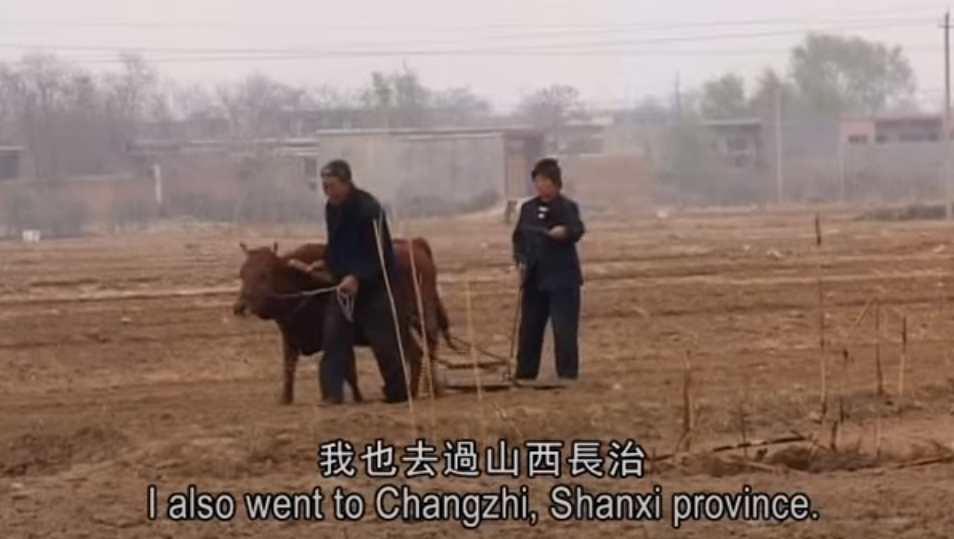
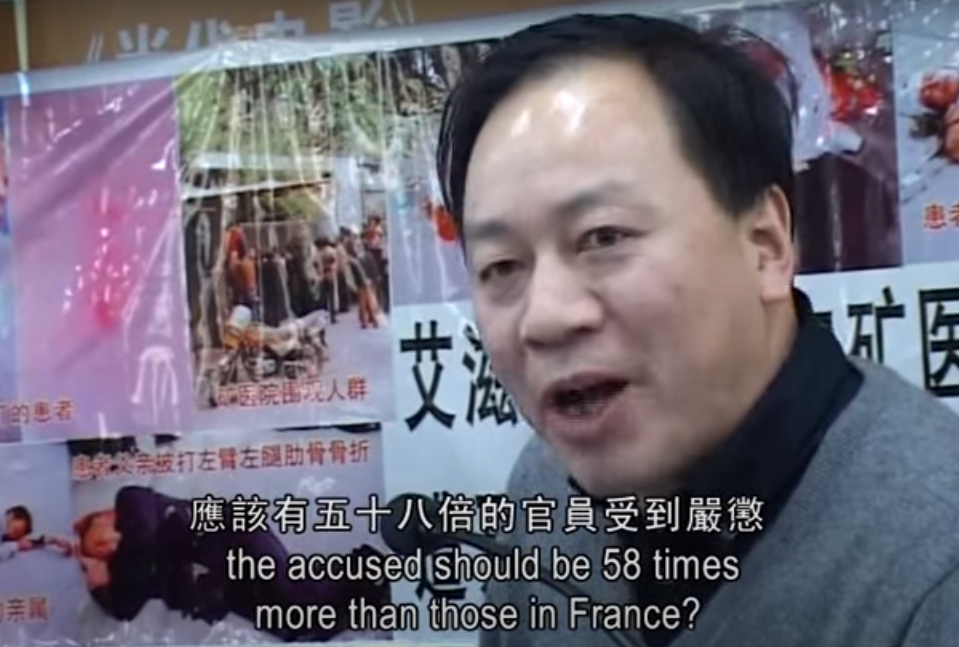
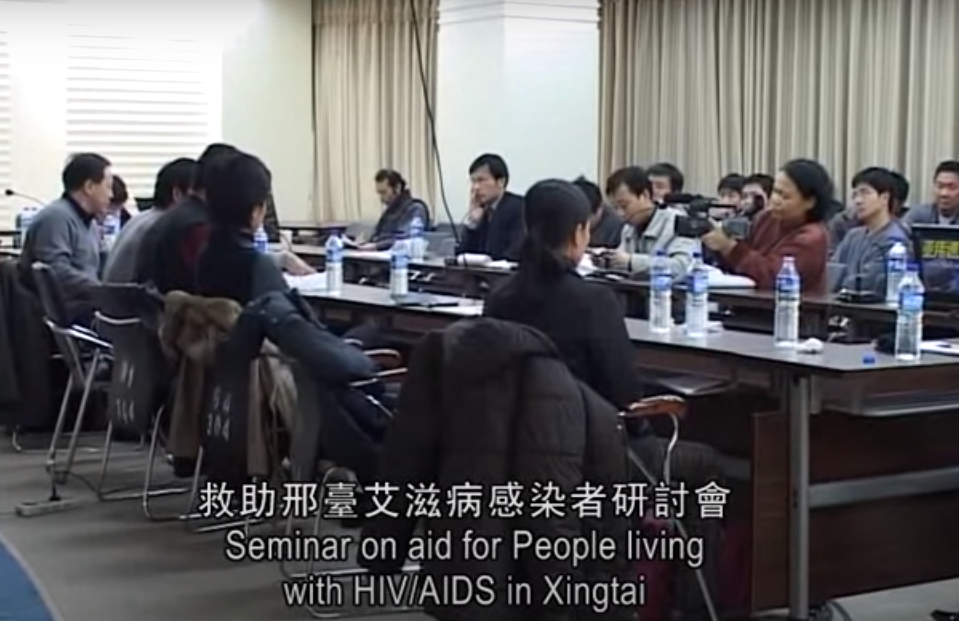
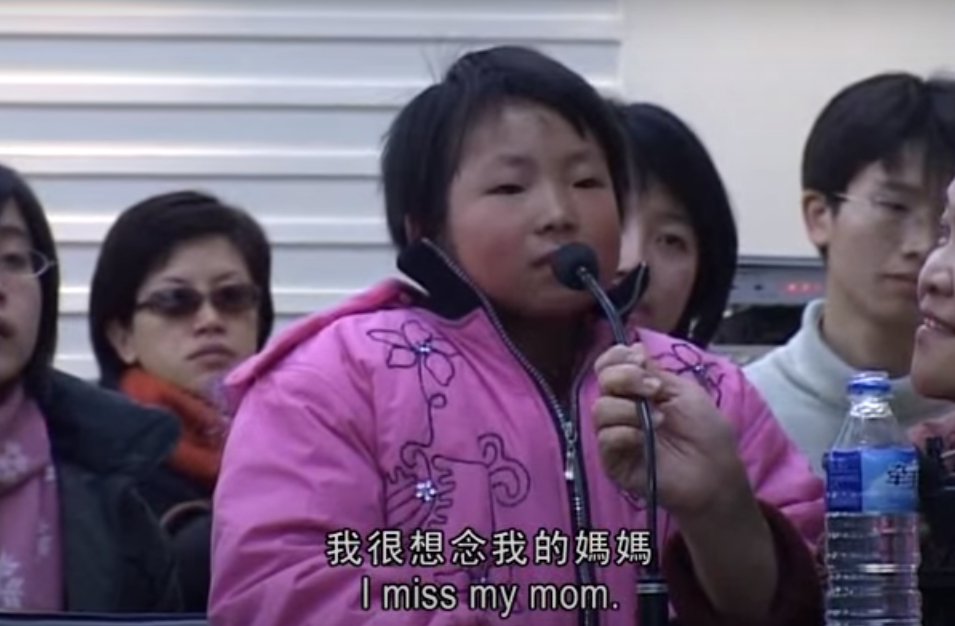
Copyright © 2024-2025 All Right Reserved.
GMT+8, 2026-3-5 21:35 , Processed in 0.020176 second(s), 19 queries , Gzip On.
免责声明:本站仅为用户之间信息交流之媒介,所有内容均来源于网络或用户投稿,本站服务器不储存任何音视频文件,所有内容包含图片的版权均归原作者所有。站内下载链接仅供个人学习交流使用,请于24小时内自觉删除,若用户非法收藏、传播或将资源用于其他商业用途,均与本站无关,所产生的一切后果由使用者自行承担。如本站点所发布内容侵犯了您的权益,请第一时间联系管理员317379335@qq.com,我们将及时予以删除,并致以歉意!

联系管理员